Innovators
Staff Reports //December 2, 2019//
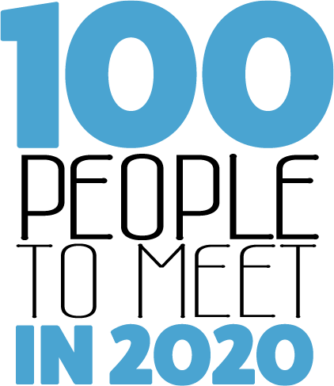
Virginia has no dearth of creative, visionary entrepreneurs and businesspeople. Representing industries ranging from hemp farming to autonomous vehicles and blockchain, they’re moving the needle.
Steven Critchfield, President and CEO, MOVA Technologies; owner, West Main Development, Pulaski
Entrepreneur Steven Critchfield is still steeped in redevelopment projects to recycle old properties in Pulaski. But his MOVA Technologies is undertaking recycling of a different sort. It’s developing licensed technology from the invention of a late Virginia Tech researcher to capture and recycle particulate matter and gaseous pollutants from power plants and incinerators through a panel-bed filtration system. Isolated pollutants could then be repurposed, such as nitrogen harvested for fertilizer production. The technology, still in the proof of concept phase, is being further developed to remove carbon dioxide from the atmosphere. •
Ali Greenberg, Founder, The Broad, Richmond
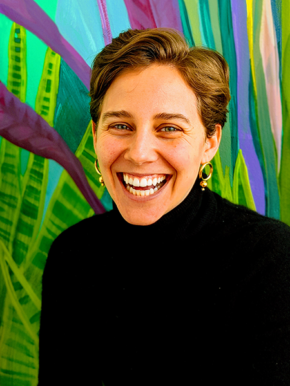
Inspired by the energy of Richmond’s creative community — and especially its women — branding entrepreneur and world traveler Ali Greenberg founded The Broad, a downtown workspace, social club and community center designed for women and gender minorities. The Broad, opened last year, is a busy hive, with workshopping, networking and organizing. “We exist to make space for people who haven’t always had space made for them,” is Greenberg’s mantra. •
Matt Hagan, Owner and farmer, Truharvest Farms, Christiansburg
The 2,000-acre Truharvest Farms, run by Matt Hagan, was once known for raising cattle. Hagan, however, recently invested heavily in growing industrial hemp, a traditional West Coast crop legalized for industrial commercial cultivation in Virginia this year. This farmer is used to taking risks. In his other life, he’s a two-time world champion Mopar Funny Car drag racer. While hemp can be used in such industries as textiles and biodiesel, Hagan’s big investment — at more than 85 acres, the largest plot in Virginia — comes from the perceived benefits of the plant’s oil, a low-THC variant of marijuana that he believes helps patients with joint pain, sleeping disorders, fibromyalgia and other illnesses. •
Wendy Jiang, CEO, Tablee, Richmond

Wendy Jiang’s startup, Tablee, is based on a simple concept: a restaurant customer’s need to get their server’s attention. The Tablee Tap is a button that sends a signal to a waiter’s smartwatch when customers need water, fresh napkins or anything else. Jiang and her team, based in Richmond, were part of the Lighthouse Labs startup accelerator’s fall 2018 cohort. Tablee has since partnered with Performance Food Group and United Restaurant Group, which owns one of the largest TGI Friday’s franchises in the country. Tablee is in the process of raising seed money. Jiang says her experience as a server while attending William & Mary helped her realize the value of a device like Tap. •
Rena Johnson, Farmer, Highland Dairy, Glade Spring
When the Swedish company DeLaval, a world leader in dairy farm products, needed to try out its new P-500 system for milking cows, it went to Highland Dairy, a family-owned operation in Washington County overseen by third-generation farmer Rena Johnson. The Scandinavian system replaced Highland’s 1970s-era equipment — housed in a specialized barn built by Rena’s father, Dave Johnson — and so far, so good. The new milking parlor is capable of handling 32 cows at a time, and the bovines have more room to move around. Like they say: happy cow, happy farm. •
Diane Kees, COO, Micro Harmonics Corp., Fincastle
Diane Kees is quick to say that she’s part of a brother-sister team. She and her sibling, company CEO David Porterfield, co-founded Micro Harmonics, which makes millimeter-wave components for NASA and other customers. Micro Harmonics’ parts are used in automated vehicles, wireless communication and security scanners, among other uses. NASA employs them to help take images of the Earth’s ozone layer. This past year, MH was one of six companies accepted into RAMP, a Roanoke business accelerator that assists STEM-affiliated companies in testing and marketing their products. “Fincastle is very conveniently located just a few miles off of I-81,” she says. “We have access to students from Virginia Tech, Virginia Western Community College and Botetourt Technical Education Center just around the corner.” •
Dan Larimer, Chief technology officer, Block.one, Blacksburg
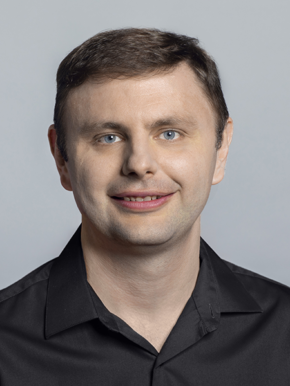
Dan Larimer, a Virginia native and graduate of Virginia Tech, is one of the co-founders of the blockchain software company Block.one, along with CEO Brendan Blumer. The startup has captured attention not only for its technology but also its backing by PayPal co-founder Peter Thiel. Its growth has been stunning, as shown in Bloomberg’s running of the numbers this spring: If you’d put an early $100,000 investment into Block.one, founded in 2016, you’d be looking at a $6.6 million return within the next three years, or 6,567%. Block.one announced in September that it would invest $10 million to build its U.S. headquarters in Arlington County while keeping its Blacksburg offices — where Larimer will continue to work. He also shared his knowledge and experience in November as a keynote speaker at Virginia Tech’s first Blocksburg Summit about blockchain technology. •
Eman Pahlevani, COO and co-founder, Hungry Marketplace, Arlington
Eman Pahlevani’s Hungry Marketplace concept is so simple, it’s beautiful. The marketplace connects the Washington, D.C., region’s best chefs to private event planners and foodie gatherings and even finds a way to feed the hungry. The for-profit service was co-founded by Pahlevani and brother Shy, who also co-own a company, LiveSafe, that develops personal safety software; Hungry Marketplace has attracted celebrity investors like Jay-Z and Usher and is looking to expand into other cities such as Boston and Philadelphia. And with the same philanthropic concept: Every two meals purchased generates one provided to a local food bank. •
Paul Perrone, Founder and CEO, Perrone Robotics, Crozet
Earlier this year, Perrone Robotics partnered with regional transportation system JAUNT to place autonomous shuttles on the streets of Crozet as a pilot project. Company founder Paul Perrone expects to expand the shuttle’s footprint next year. Perrone has made agreements with two Fortune 100 companies to provide fleets of self-driving vehicles. The company also is partnering with a large transit authority and placing shuttles in other places across the country and a few areas internationally. “We’ll be transforming into a massive company based in Virginia, given the hot space we’re in,” Perrone says. •
Michael Pittman, President and founder, Connected Solutions Group, Mechanicsville
Remember the BlackBerry? That was Michael Pittman’s ticket into the mobile business in the mid-2000s. He bought the phones used and flipped the refurbished devices on eBay for a profit. He recalled that story for Inc. magazine, which this summer ranked the company he founded in 2015 at No. 8 on the Inc. 5000 list of the fastest-growing private companies. Why? Connected Solutions Group has grown its revenues 12,701% since its start, hitting more than
$23 million last year. Pittman has found his sweet spot in bundling gadgets, routers, phones and tablets with the software that companies need. •
Robert Pizzini, CEO and managing partner, iFLY Virginia Beach Indoor Skydiving, Virginia Beach
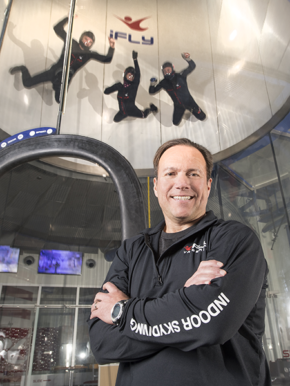
In 2015, five years after 26-year Navy veteran Pizzini retired with a Bronze Star, he started Virginia Beach’s iFLY, a simulated skydiving experience. The thrill venture was awarded the Virginia Beach 2018 Chamber of Commerce Small Business of the Year prize. Now Pizzini, who moonlights as a USA Hockey coach, is developing an indoor hockey arena called the Warrior Ice Center. “I’m leading this effort,” he says, “along with Rich Appleby, the president of the Hampton Roads Youth Hockey Association, and Ryan Croley, a retiring Navy SEAL captain who heads up our military connections.” •
Louise Reed, CEO and founder, Afloat Inc., Richmond
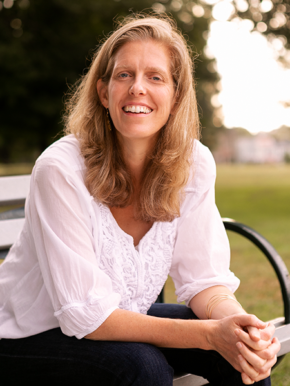
Louise Reed started out at Duke University studying physics and then shifted to accounting, becoming a CPA in 2003. Last year, she started Afloat, a Richmond-based startup seeking to create a blockchain-based online marketplace for transferrable tax credits. The theory is that people who want to restore a farmhouse or start a business in a low-income area often don’t benefit from tax credits; they need cash. Large corporations would benefit from transferrable credits they could purchase. A blockchain database, she explains, creates a secure system for transferring credits. “The same part of me that was drawn to physics is drawn to this,” Reed says. •
Sonu Singh, CEO, 1901 Group, Reston
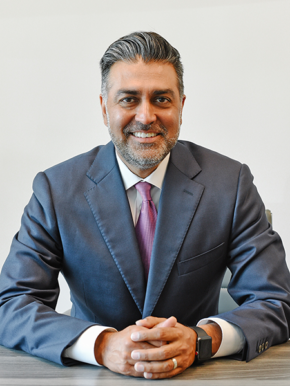
Sonu Singh says everything about enterprise IT has changed over the last 30 years — except how customers consume it. He is working to change that model by serving federal clients while sourcing talent from rural areas with a more affordable cost of living than Northern Virginia, where his 1901 Group is based. His company is expanding with the 45,000-square-foot Enterprise IT Operations Center in Blacksburg, where Singh grew up. Located in the Virginia Tech Corporate Research Center, the center will house software engineering, security and operations teams to support cloud services. The facility is scheduled to open next spring. •
Greg Twitt, Founder and CEO, Globalinx Data Centers, Virginia Beach
The fastest cable in the ocean runs at about 220 terabits a second, starting in Northern Spain and touching base in Virginia Beach, a data off-ramp of sorts, and its traffic engineer is Greg Twitt. He recalls his university days in Australia during the 1970s, when his computer programming was fueled by punched cards fed into machines. Now information flies through the ocean, where Twitt sells server space and access through his recently finished carrier-neutral data center. It’s located next to Texius, which operates the submarine cable from Spain and another from Brazil. Virginia’s data-center industry forms an ecosystem for business and enterprise, he says. As for the limit of what Globalinx can provide, he says, “It’s almost infinite — almost.” •
Jason Wells, President, KYOCERA SGS Tech Hub LLC, Danville
Jason Wells declared his 30,000-square-foot facility Danville’s newest industrial citizen when it opened last year in Cyber Park. A subsidiary of global Kyocera SGS Precision Tools Inc., the Tech Hub develops tooling and machining solutions for a wide spectrum of industries. The $5 million facility with $4.5 million in initial capital equipment will create 40 jobs over the next five years. Wells, who holds multiple patents within the field of cutting tools, also is on the board of directors for the state’s Commonwealth Center for Advanced Manufacturing. •
Katherine Wintsch, Founder and CEO, The Mom Complex, Richmond
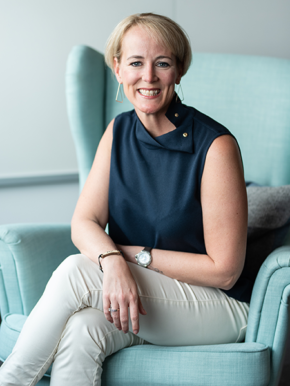
Katherine Wintsch is the guru of motherhood. An adviser to Walmart, Playskool and Johnson & Johnson who has been featured on NBC’s “Today“ show, she’s devoted herself to helping moms deal with stress. An alum of Richmond’s The Martin Agency, Wintsch launched The Mom Complex, a consulting and networking firm under the ad firm’s umbrella to promote products that help make the lives of mothers easier. In 2017, Wintsch spun off the company and recently wrote a maternal empowerment book, “Slay Like a Mother.” Named as a “Woman of the Decade” by the Women’s Economic Forum, she was tapped to be a guest speaker at the 2019 VA1 Virginia Tourism Summit in November. •
Bobby Wright, President, Percolator, Norfolk
Norfolk developer Bobby Wright’s creative space venture may need a new name. Percolator is actually spilling out all over the city. Founded in 2017, it recently opened its fourth location in MacArthur Center, joining spaces on Granby Street and Monticello Avenue, all designed to house and nurture startup companies and serve anyone seeking a shared work area. The membership has benefits. Last year, Percolator startups began a partnership with Old Dominion University to help drive projects, some federally funded, to area entrepreneurs. “What really makes this unique is the collaborative environment that encourages small business owners to form relationships,” Wright says. •
!















